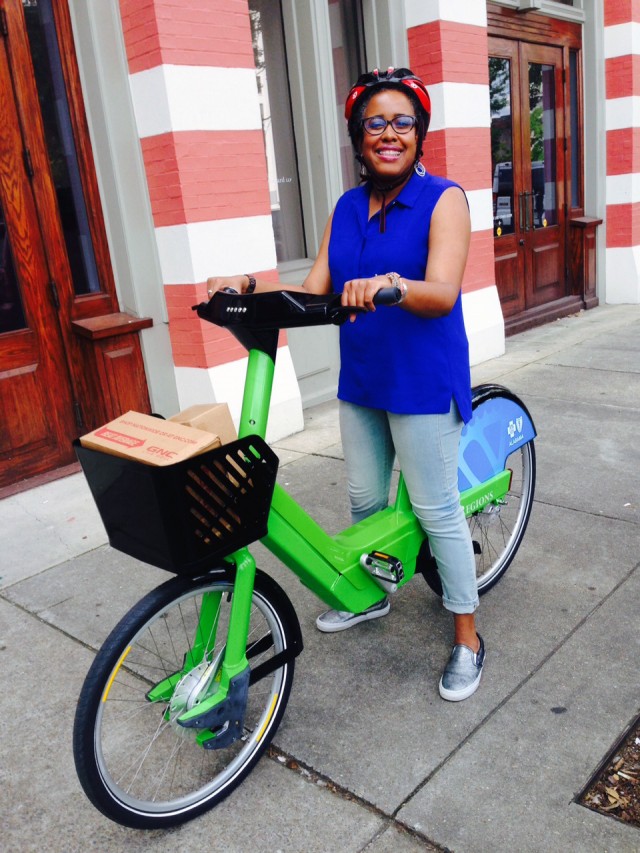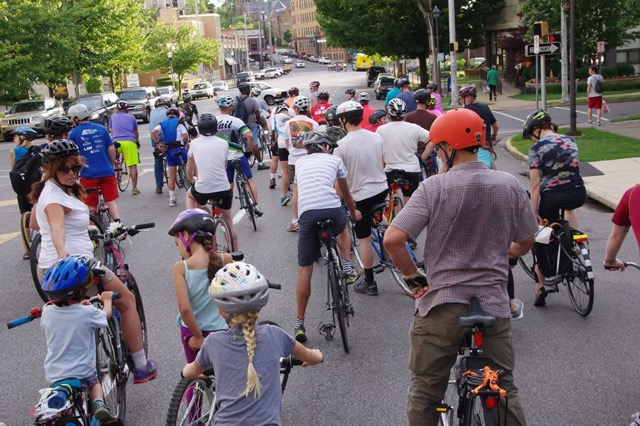Birmingham will get North America’s first electric-assist bike share
by April Corbin, PeopleForBikes equity writer
June 11, 2015
There are already too many barriers to riding. The bicycle itself should be easy.
That’s part of the thought behind Birmingham’s decision to become the first city in North and South America to launch a bike share system that includes electric pedal-assist, or pedelec, bicycles.
Scheduled to launch in mid-September, REV BikeShare will have 40 stations and 400 bicycles supplied by Bewegen. A quarter of that fleet will be pedelec, with operators having the option of retrofitting others later, depending on demand. The two types of bicycles will look nearly identical, with only a sticker or marking on the fender skirt to let riders know which type of ride they can expect.
“It’s appealing as a way to reduce the barriers to access,” explains Lindsey West, the director of bikeshare at REV Birmingham, the public-private economic development organization launching the system. “It’s about the general person not being intimidated and feeling comfortable enough to try. Maybe they are obese, or just had knee surgery, or have some other health concern.”
Even people without concerns as specific as those may be enticed by the pedelec option. Many new or potential riders underestimate their physical ability and the distance they are capable of riding, and the majority of adults are either new or potential riders. Only 29 percent of adults rode a bicycle at least once in the past year, and 30 percent of those who did rode fewer than six days.
“This provides a comfort level, knowing there’s assistance for you,” says West. “It takes away the, A mile is so long. What if I just can’t do that?”
Stan Palla agrees. He’s the former executive director of the Alabama Bicycle Coalition and organizer of Le Tour de Ham, a weekly social ride that averages 80 to 150 people and welcomes new riders.
“This will encourage people who haven’t ridden in a while,” he says, adding that he thinks pedal-assist is especially beneficial for bike share bikes because they are heavier than the average bicycle on the road. “I think Birmingham is ready for bike share.”
Having pedelec bicycles isn’t the only thing REV hopes will attract people to bike share. West says Birmingham is going with “a more dense system than many people expected” in order to feel accessible.
The combination of this, West believes, might create an especially welcoming system for older riders. REV is already exploring ideas to market bike share to the AARP crowd. In addition to traditional marketing staff, the system plans to hire a community engagement coordinator to focus exclusively on social and geographic goals related to equity.
In preparation for the launch, West and others have been meeting with community groups and introducing them to bike share and pedelec bicycles. While REV is betting on the long-term potential these bicycles have, in the short-term they will have to do a lot of explaining.
“That word ‘pedal’ in ‘electric pedal-assist’ gets left out a lot,” she explains, “but it’s important. It’s pedal-assist. There’s no throttle. It’s not an electric bike.”
The pedal-assist feature will be capped at 16 mph because at 20 mph, they would no longer be classified as traditional bikes and therefore subject to different regulations. Furthermore, West still wants people to understand the physical benefits of riding a pedelec.
“You’ll feel the additional assistance, but it is still based on pedaling,” she says.
The Better Bike Share Partnership is a JPB Foundation-funded collaboration between the City of Philadelphia, the Bicycle Coalition of Greater Philadelphia, the National Association of City Transportation Officials (NACTO) and the PeopleForBikes Foundation to build equitable and replicable bike share systems. Follow us on Facebook, Twitter and Instagram or sign up for our weekly newsletter. Story tip? Write april@peopleforbikes.org


